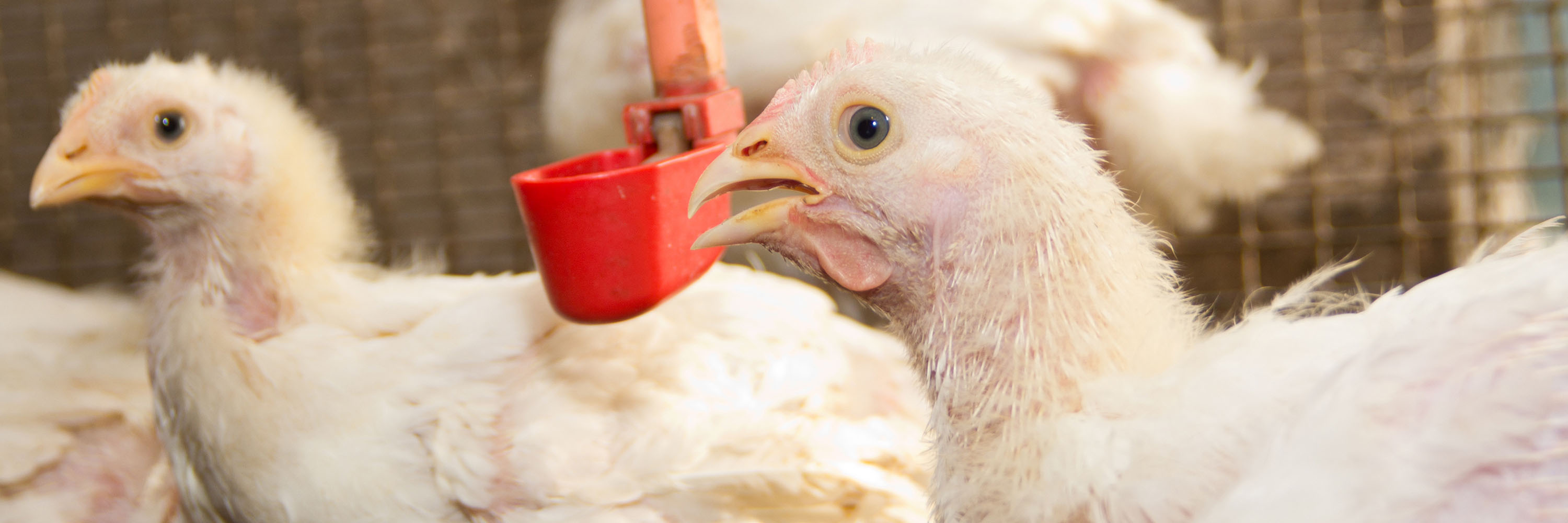
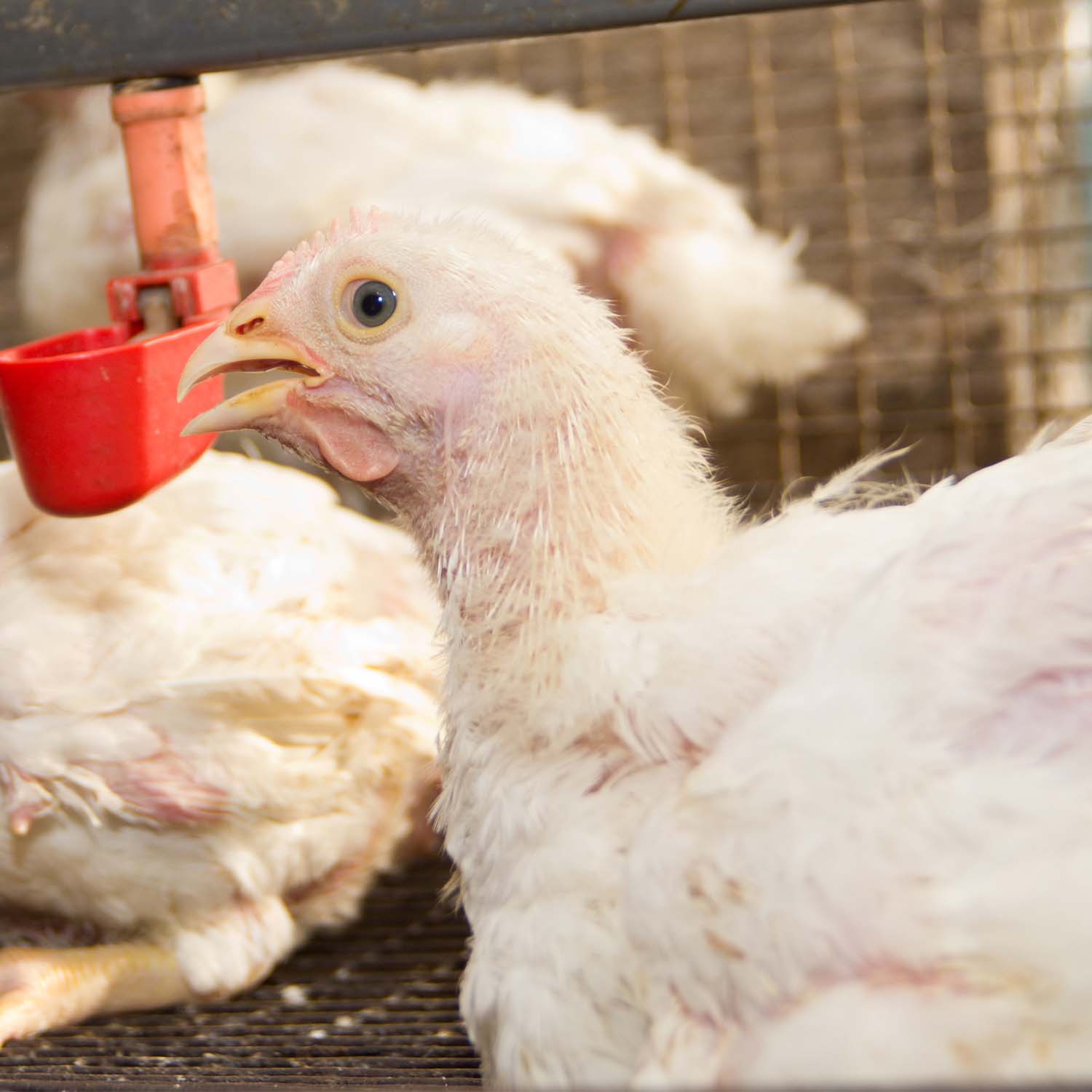
9 cruel yet legal farming practices

Because of the space they require, industrial farms and slaughterhouses are usually built away from inhabited areas. They have no windows and no architectural clues of what happens inside.
Very few people really know what happens to animals in these places. This is why Animal Equality is dedicated to exposing the reality through undercover investigations.
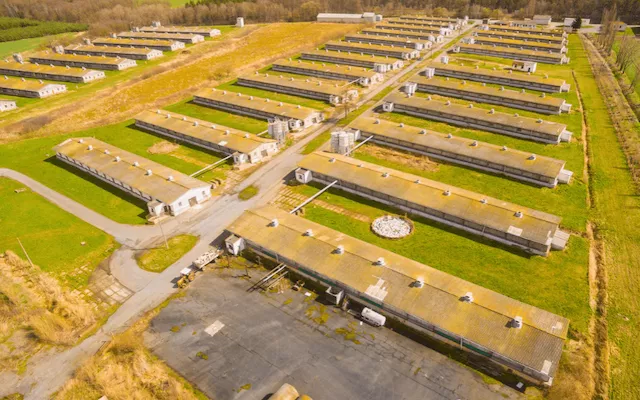
Shocked by the cruelty they witness, people who watch our investigations often think that what we are documenting is illegal.
However, many of the abusive practices that our investigations bring to light are actually legal.
The animal agriculture industry is well aware that these cruel practices would not be accepted by the general public. So they invest millions in marketing campaigns that show animals happily roaming in the grass. Nothing could be further from the truth.
These are some of the standard, legal practices that farmed animals are forced to endure every day:
- Artificial insemination
- Crates for mother pigs
- Premature separation of mothers and babies
- Painful mutilations
- Unnatural growth
- Overcrowded cages
- No food or water for days during live transport
- The slaughter process
- Animals killed right after birth
Artificial insemination
Artificial insemination involves the collection of sperm cells from a male animal which are manually deposited into the reproductive organ of a female. The farmed animals subject to this practice are cows, female pigs, sheep and turkeys.
The process requires farmers to insert a catheter inside the animal. In the case of female pigs, in particular, catheters inserted incorrectly might enter the bladder and cause infections.
Female animals used for breeding are forced to undergo this distressing process over and over again for years. It is not uncommon for them to develop infections in their vulvas as a result of repeated pregnancies.
Crates for mother pigs
In the pork industry, female pigs are confined to crates for up to 4 months during their pregnancies. One week before giving birth, they are forced into another crate where they will remind throughout the piglets’ birth and while nursing them. After their piglets are weaned and taken away from them, they’re forced into these crates again to repeat the painful cycle.
In these tiny crates, a sow is unable to move or turn around, let alone nurture her babies. Due to extremely limited space, a mother can accidentally crush her babies with her own weight. Given the strong bond that mother pigs form with their babies, crates cause them great psychological distress.
Additionally, because these mother pigs are not able to move inside the crates, they are forced to stand and lay in their own excrement. This has been shown to lead to severe infections that are often left untreated.
Nine US states currently ban or restrict crates for mother pigs–Arizona, Colorado, Florida, Maine, Massachusetts, Michigan, Ohio, Oregon, and Rhode Island.
Our recent investigation into a ‘quality assured’ pig farm, revealed alarming footage of sows with extremely severe infections left untreated.
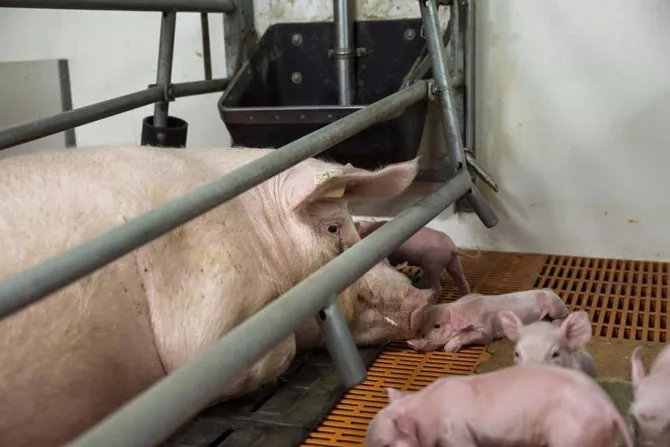
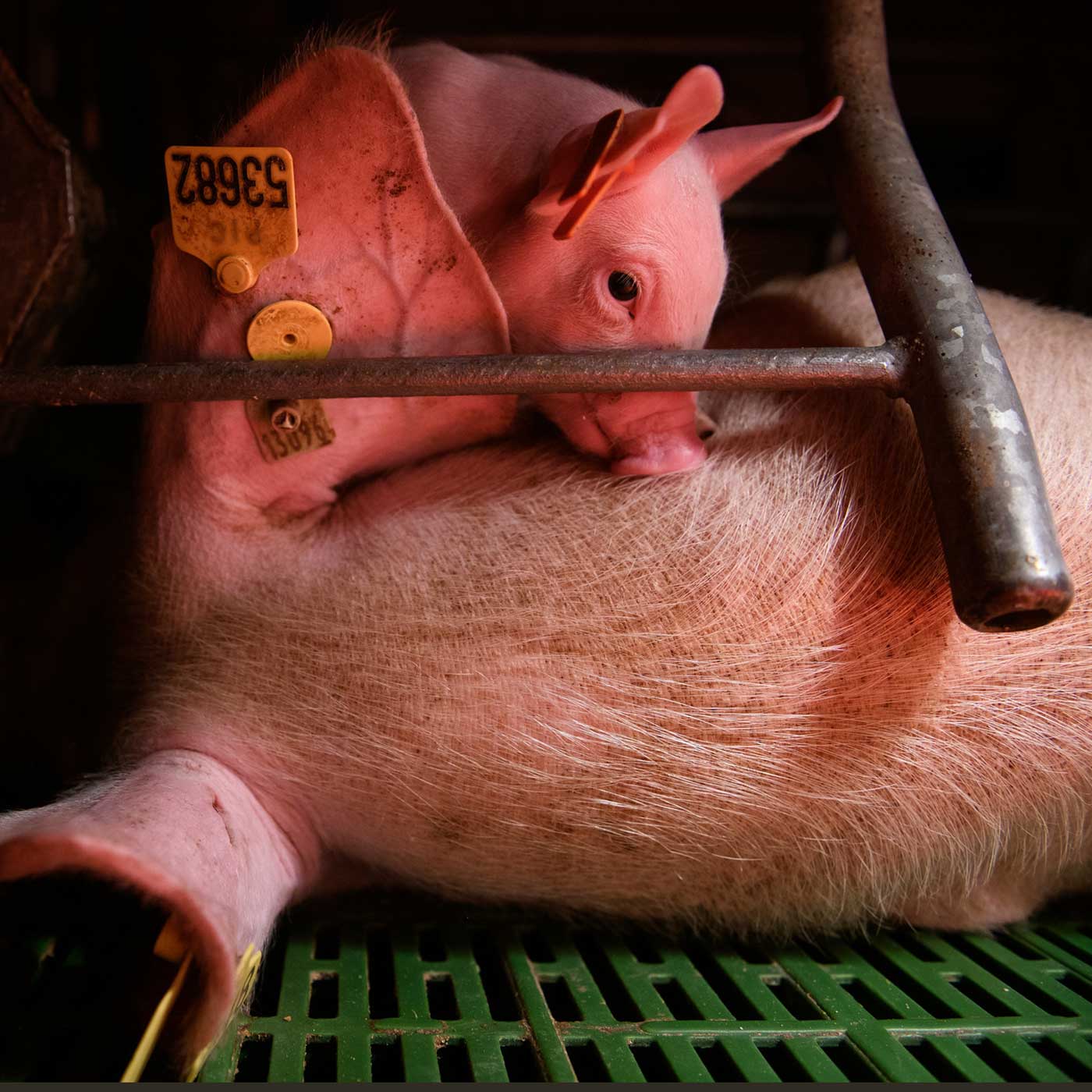
WILL YOU STEP UP FOR HER?
Her mother’s life was spent in a cage. She will suffer the same fate. But you can change this for millions of animals, currently trapped in factory farms.
Your support makes our investigations, campaigns, and legal work possible .
Only $25/month impacts 1,300 animals in a year.
Premature separation of mothers and babies
Whether it is for meat or dairy, mothers and their babies are separated shortly after birth in factory farms.
Just like humans, cows only produce milk for their babies. In order for the industry to take her milk, a cow’s baby is taken away from her after only 24 hours after giving birth. This causes them both great psychological distress. After being torn away from her mother, the calf will spend the first two months of her life in extreme confinement and fed a milk replacer. The milk that her mother produces will be sold for human consumption and profited from by the dairy industry.
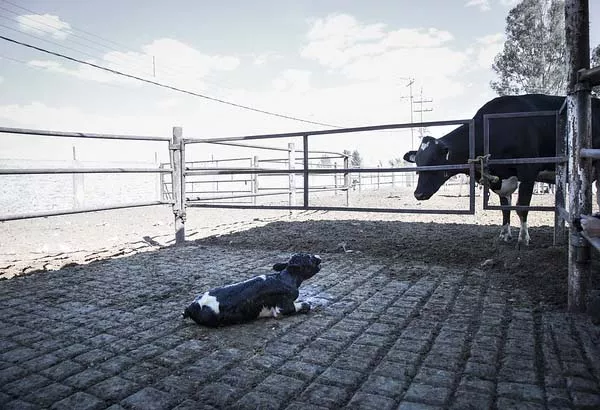
Cows used for dairy go through this process for their entire lives until they are unable to produce milk. Then they are sent to slaughter to suffer the same fate as other animals used for meat.
A mother pig would naturally nurse her piglets until they are between 10 and 17 weeks old. On factory farms, piglets are separated from their mother when they are only three weeks old. This separation is highly distressing for both mother pig and her piglets, who can be heard crying out for each other.
Separating mothers from their babies is not only painful but also unnatural. It strips away the animals’ freedom to express their natural behaviors and develop bonds with their families.
Painful mutilations
Tail docking is the removal of part of the pig’s tail in order to reduce the risk of tail biting in older pigs. Tail biting is a consequence of psychological and physical distress pigs are subjected to in factory farms. This stress is brought on by living in overcrowded sheds with limited space.
Tail docking should only be done as a last resort. Farmers should first look at ways to reduce aggression such as separating pigs or reducing stocking densities. However, as many of our investigations have revealed, this is not often the case. Some farmers routinely cut piglets’ tails without assessing the situation and without giving them any pain relief.
Teeth clipping is the removal or grinding of the sharp ends of a piglet’s needle-like teeth to reduce the chance of injury to their mother’s teats during suckling and to other piglets.
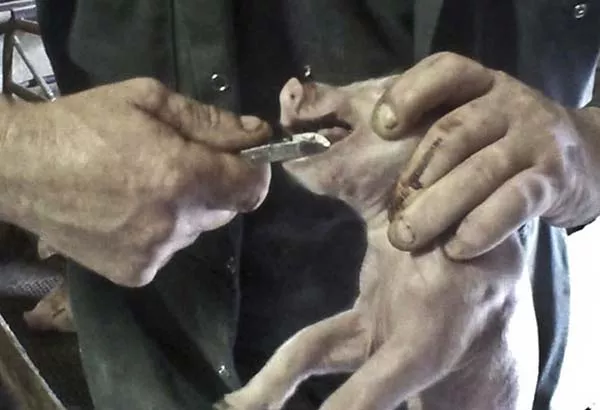
Same to tail docking, teeth clipping should only be performed as a last resort. One that is only taken after first attempting to improve the pig’s environment. But there’s evidence that biting is still happening. However, in many of our investigations inside pig farms, we have found farmers routinely clipping piglets’ teeth without giving them any pain relief. Many piglets develop infections in their gums due to the procedure being carried out without the proper care.
Castration is carried out on some pigs and calves. In calves, castration is carried out to make the animals easier to handle and to avoid accidental mating.
Dehorning is the removal of the horns in cows. This is done to reduce the risk of injury to workers and other animals. The most commonly used method of dehorning is the use of a hot iron to burn the horn bud-producing tissue.
It is not permitted to dehorn a calf without anesthetic unless it is through chemical cauterization–an alternative method–which can only be performed during the first week of life.
Unnatural growth
Factory farming requires the selection of fast-growing breeds to maximize production. Animals, like chickens, are bred to grow unnaturally fast, causing them to develop physiological problems. Lameness, infections, weakened or broken bones, and organ failure are common health problems for factory-farmed animals.
To keep them alive long enough to be slaughtered, diseased and injured animals may be given antibiotics.
Chickens are the most abused land animals on the planet. Around 25% of farmed chickens suffer from painful lameness. Many of them are unable to stand or walk–forcing them to sit in their own waste, which often burns their skin.
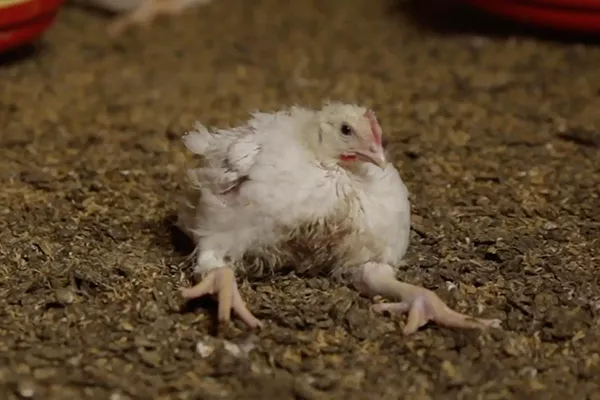
Overcrowded cages
Across the US, millions of farmed animals are kept in cages, unable to express their natural behaviors.
These cages hold up to 80 birds, who each have less space than an A4 piece of paper. Over 72 percent of hens used for eggs in the US are currently crammed into cages and forced to endure a life of misery.
Animals kept in cages suffer great psychological and physical distress. They are forced to live in filthy conditions, with minimal room to move. In these overcrowded spaces, hens are unable to develop social hierarchies or escape bullying behavior. They are often crushed or trampled by others in the same cage.
Ten US states have banned the use of cages for hens–Arizona, California, Colorado, Massachusetts, Michigan, Nevada, Oregon, Rhode Island, Utah, and Washington.
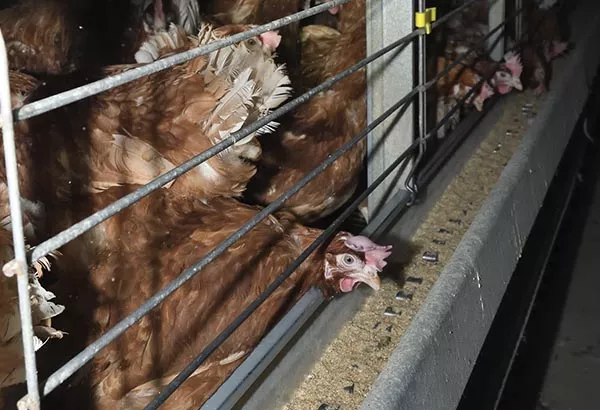
Animals left without food or water for days during live transport
Every year, millions of farmed animals–including pigs, cows and calves, sheep and goats–are transported for hundreds or even thousands of miles on land or sea, only to be used for breeding or slaughtered at their destination. The conditions under which they are transported are shocking and can expose animals to prolonged suffering. Many die before they reach the slaughterhouse.
The vehicles are often overcrowded, causing them to step on or injure each other. In addition, animals can be left without food and water for up to 48 hours, causing them to become dehydrated.
Accidents or technical problems often occur during these long journeys, also leading to injury or death.
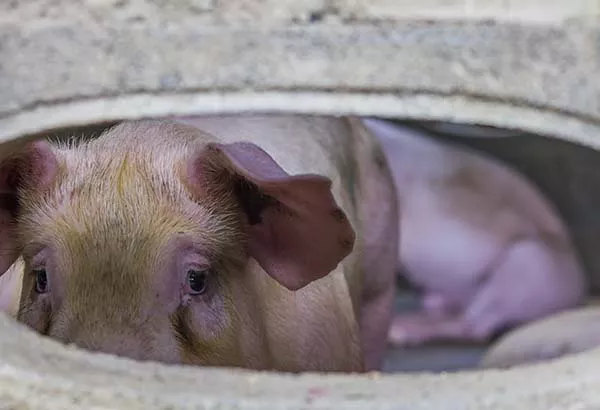
The slaughter process: gas stunning, electric water baths, and the slaughter of pregnant cows
More than 10 billion land animals in the US–excluding fish–are killed each year in slaughterhouses. This means 266 every second. This includes over 124 million pigs and over nine billion chickens raised for their flesh. Other animals killed for food include turkeys, ducks, cows, sheep and goats. Fish killed on farms would add over 3.8 billion animals every year.
The majority of farmed animals killed in slaughterhouses are young, including babies. Piglets are slaughtered when they are six months old; chickens raised for their meat are killed at six weeks; and many male calves on dairy farms are shot for veal at just one or two days old.
One study also shows around 26% of cows slaughtered in the US are pregnant, resulting in the death of their unborn babies.
These practices are far from compassionate and resemble a production line of commodities rather than living, feeling beings.
The majority of cows in the US are stunned with a captive-bolt pistol. Once stunned, they roll out of the pen. They are shackled by one leg and lifted onto an overhead conveyor to be moved to the ‘bleed area’. Here their throats are cut and they are left to bleed out. Stunning can be ineffective and some cows have their throats cut while still fully conscious.
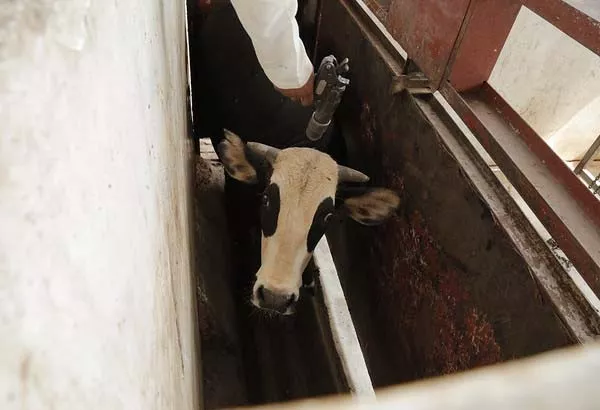
Pigs are stunned using an electric current or a high concentration of carbon dioxide gas. The latter method involves the pigs being lowered in groups into a chamber containing a minimum concentration of 70% carbon dioxide in the air, where they are left until they die. While in these gas chambers pigs desperately gasp for breath and try to escape. Once dead, they are shackled by one leg, lifted and bled out.
Chickens are slaughtered using electrical water baths or gas. For an electrical water bath stunning, chickens are hung by both legs onto a moving shackle line, which brings them to the water bath, where their heads swing into the electrified water. This process is extremely stressful and painful for chickens and is used to either stun or stun and kill them. They are then bled at the neck after they exit the water bath. Many birds lift their heads to avoid the electrified water and are therefore slaughtered while still conscious.
As several Animal Equality investigations have revealed – stunning is not always effective at the time of slaughter and many animals are killed while still conscious.
Fish are killed using different methods, among which are asphyxiation out of water, exposure to carbon dioxide, exposure to very low temperatures on an ice bed and bleeding without stunning. These procedures take several minutes to induce insensibility and are extremely cruel.
Electrical and percussive stunning methods for fish are now becoming more common. Current electrical systems include water bath stunning systems, which pass fish through electrified water to stun them.
Sadly, as our investigation inside a US catfish slaughterhouse revealed, there is a lack of detailed provisions for fish at the time of slaughter, which results in prolonged suffering during the time it takes them to die.
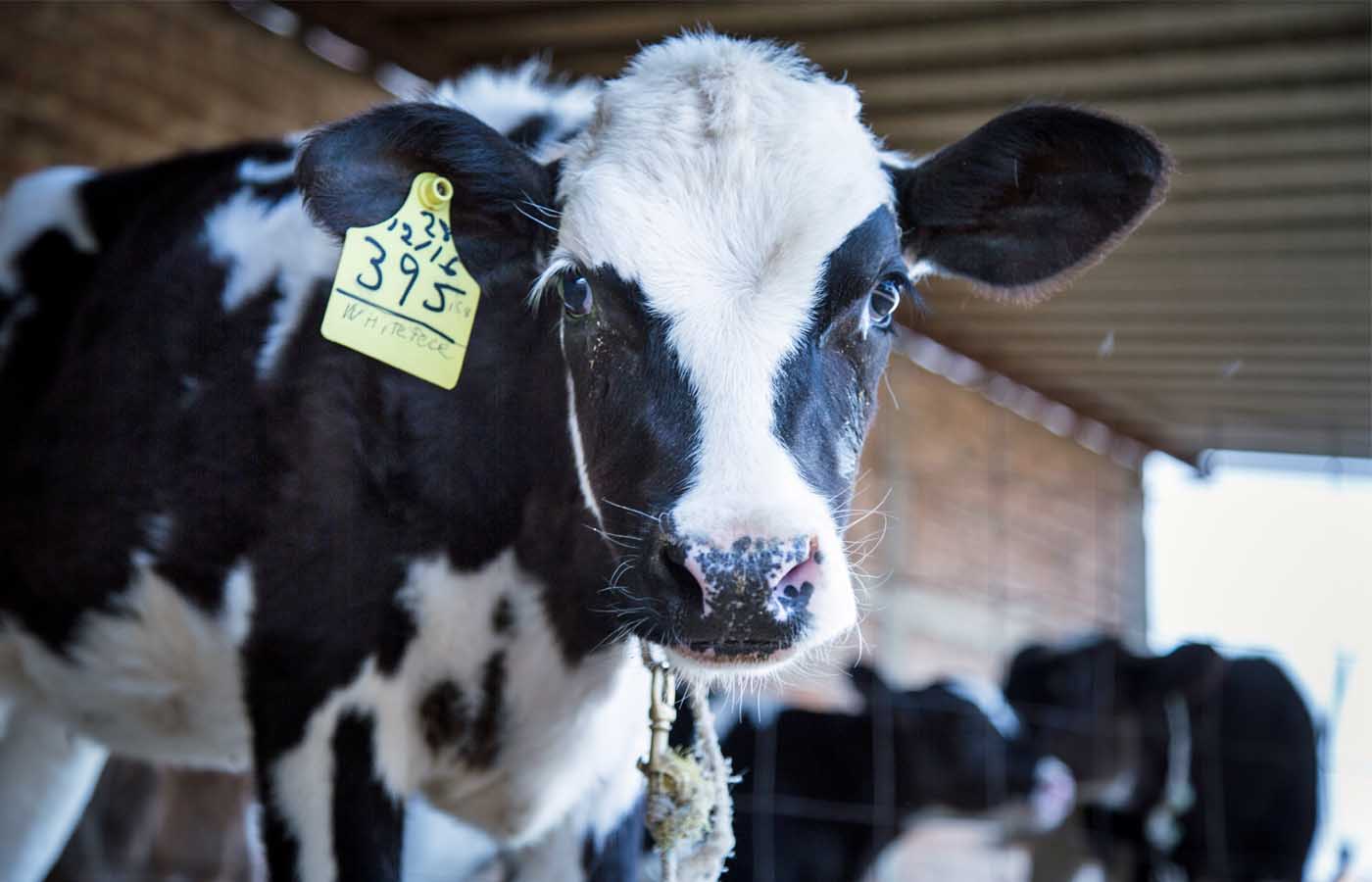
DEFEND COWS
A cow’s maternal instincts foster a gentle bond with her vulnerable calf.
Preserve this tender relationship by trying plant‑based alternatives to dairy products.
Animals killed right after birth
Animal agriculture is driven by profit and therefore anyone considered worthless by the industry is discarded.
This is the case for the billions of male chicks in the egg industry, who are ground up alive immediately after birth as they are unable to produce eggs.
They are also considered worthless by the meat industry because they are unable to grow as fast as the industry requires to be profitable.
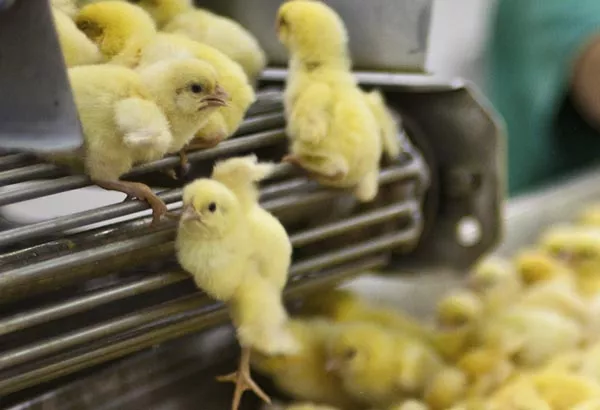
The same tragic fate applies to male calves born in the dairy industry, who are unable to produce milk. They are often shot one day after birth. Around 700,000 male calves are killed every year in the US.
Our investigative work opens a window into factory farms, exposing the cruelty these animals are subject to every day. It also reveals how the laws in place to protect animals are not respected.
This is why our investigations are crucial. They provide us with the proof we need to convince governments to take action in defense of farmed animals.
There are millions of animals going through this right now and you have the power to stand up for them and make it stop. Support our investigative work today–make a monthly donation.

